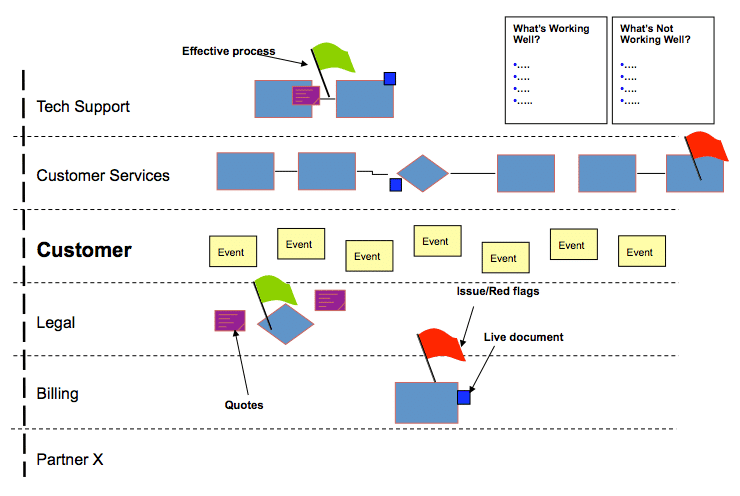
Customer Journey Mapping
Customer Journey Mapping is a workshop tool to visualise every customer touchpoint, fix broken processes and improve service experience end to end.
All the Process Improvement activities on this page help you analyse and modify your core processes so you can become a more efficient and productive team/organisation.
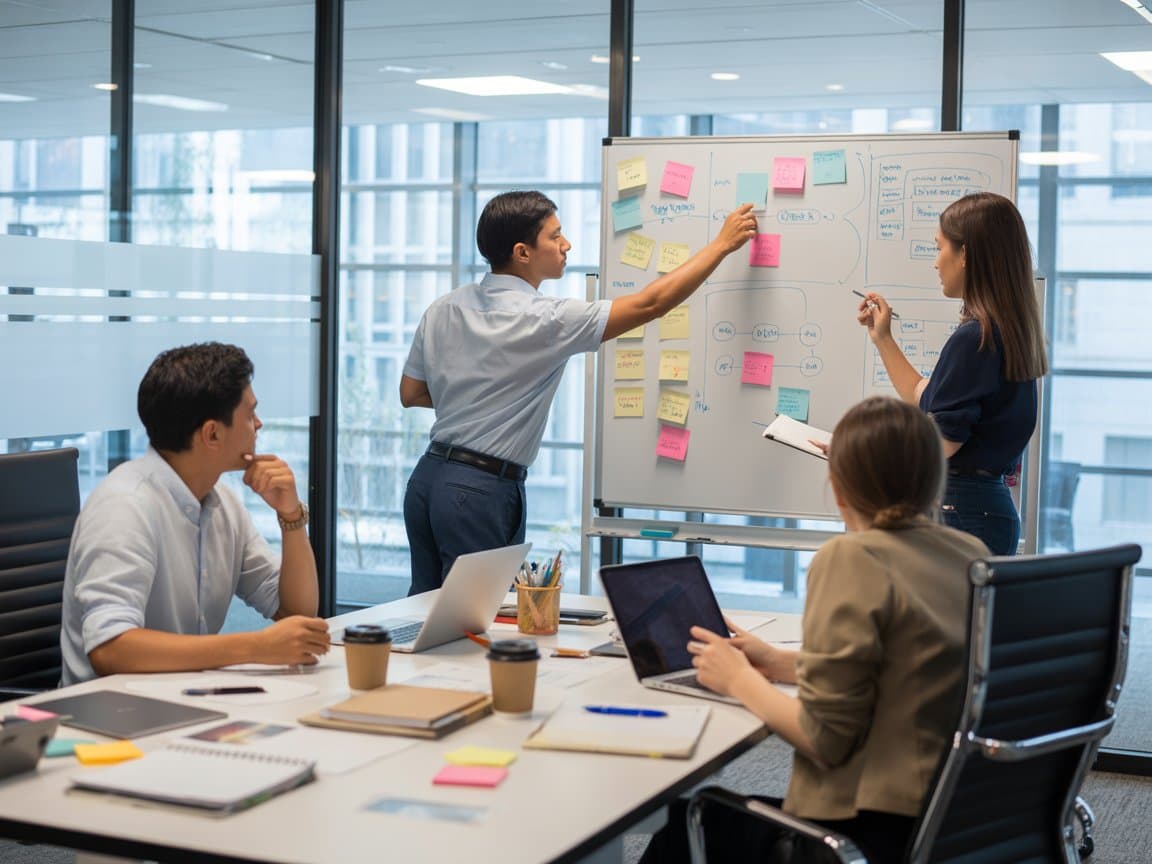
Weekly tips, templates, and techniques delivered every Saturday.
“The resources you send out are straightforward and instantly implementable. And they're so different compared to everything else out there. My workshop library gets upgraded every Saturday in less than 4 minutes.”
Join 140K+ readers for consultant-grade frameworks, strategies, and resources sent every week
⚡ Every Saturday. 4-minute read. Instant impact.
Explore articles, guides, and best practices

Customer Journey Mapping is a workshop tool to visualise every customer touchpoint, fix broken processes and improve service experience end to end.
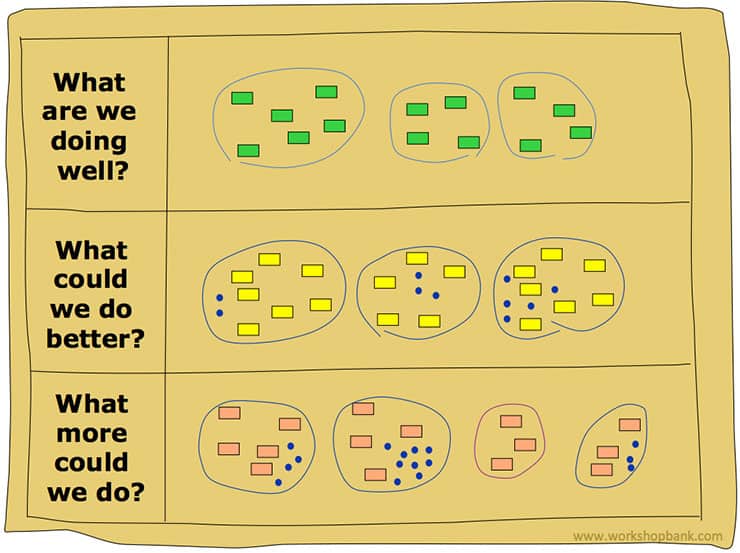
Team Review Workshop and Dotmocracy help teams quickly surface what works, what needs improving and key opportunities, then prioritise themes for action.
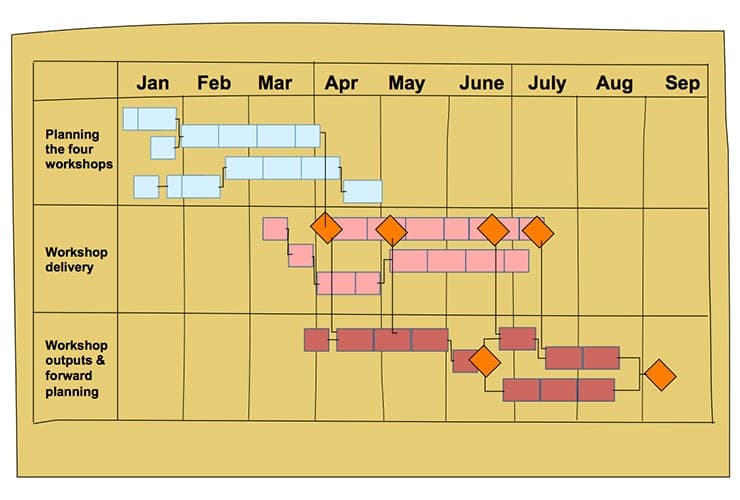
Brown Paper Planning is a team project planning workshop that maps workstreams on one big timeline to build ownership, clear roles and a realistic plan.
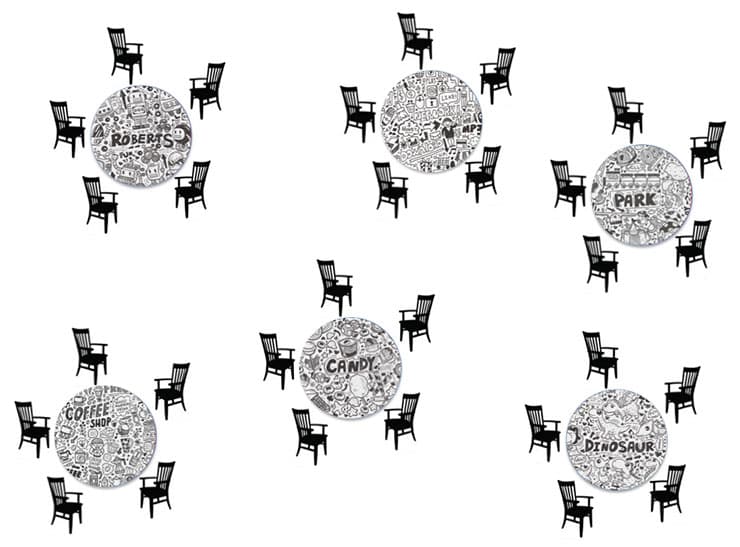
The World Cafe is a flexible large group dialogue method that helps participants explore questions that matter and share insights for collective action.
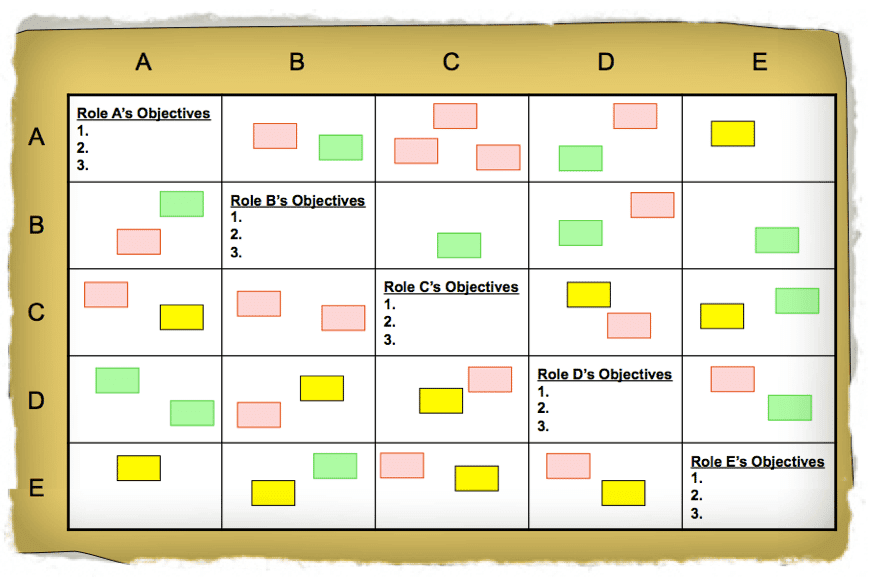
Team Role Development helps teams compare roles, uncover gaps and overlaps, and agree actions to improve collaboration and efficiency.
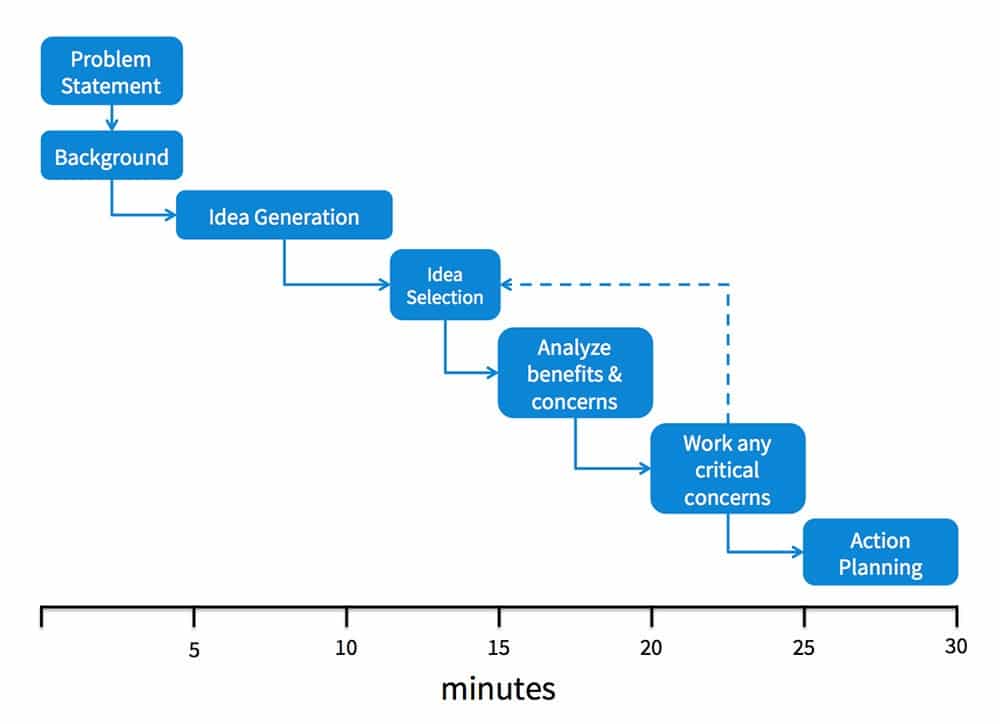
Problem Solving Team Building is a fast workshop that turns a tough issue into clear options, agreed priorities and a practical action plan.
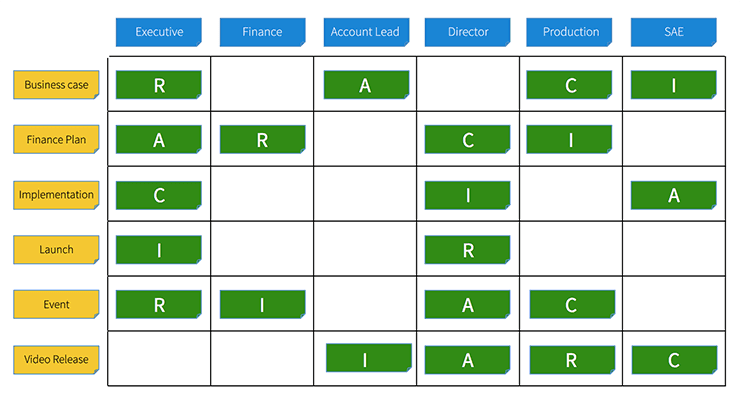
RACI Matrix is a role clarity tool that maps who is responsible, accountable, consulted and informed so teams reduce confusion and deliver work smoothly.
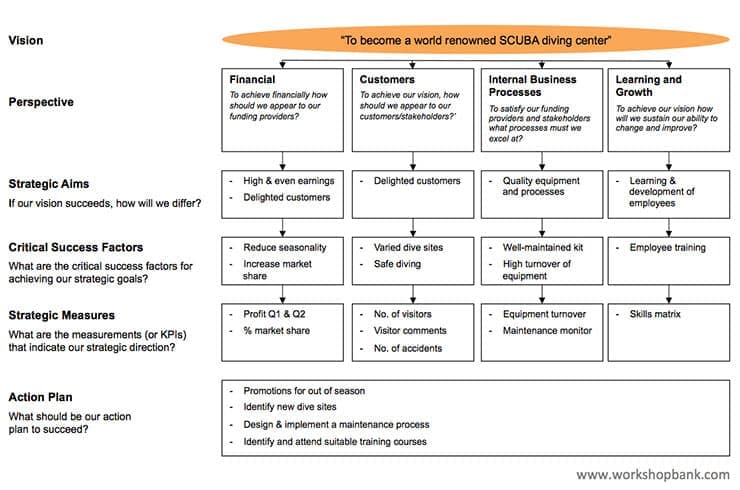
Balanced Scorecard is a team workshop to turn strategy into measurable goals, track performance across key perspectives and align daily work to vision.
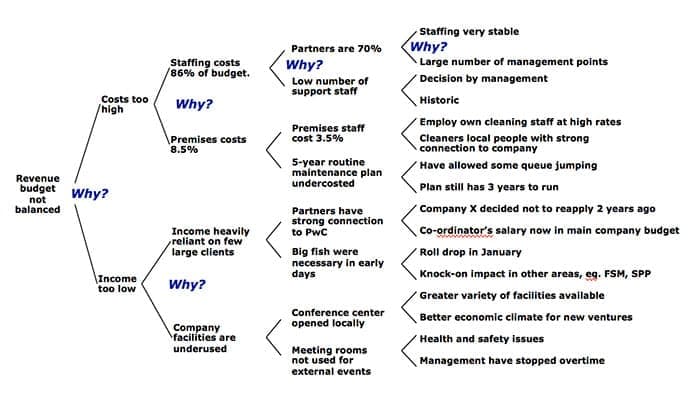
5 Whys Root Cause Analysis helps teams quickly uncover root causes of problems so they fix real issues instead of just treating symptoms.
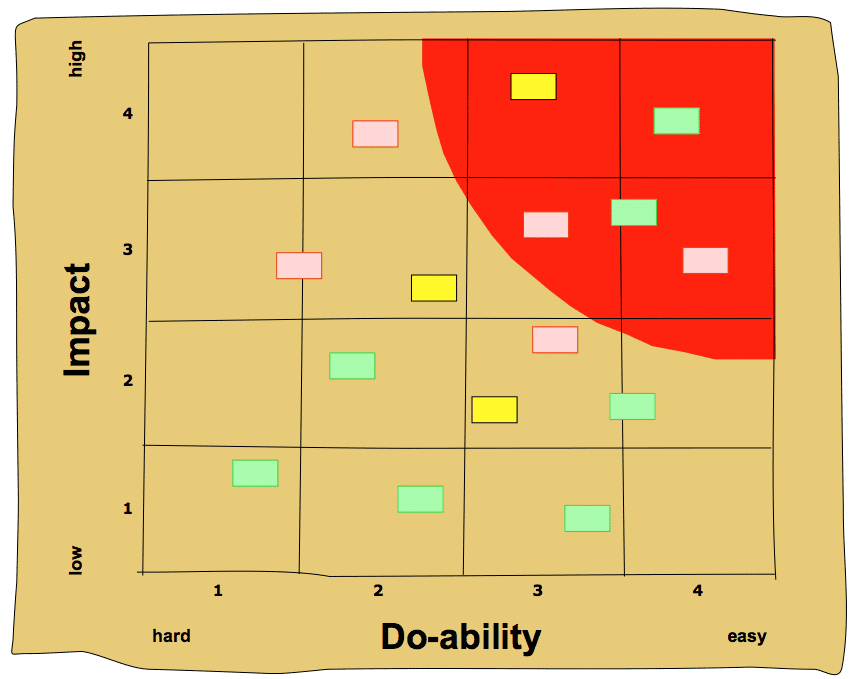
Prioritization Matrix is a visual team tool that rates ideas by impact and do-ability so you can quickly agree priorities and plan next actions.
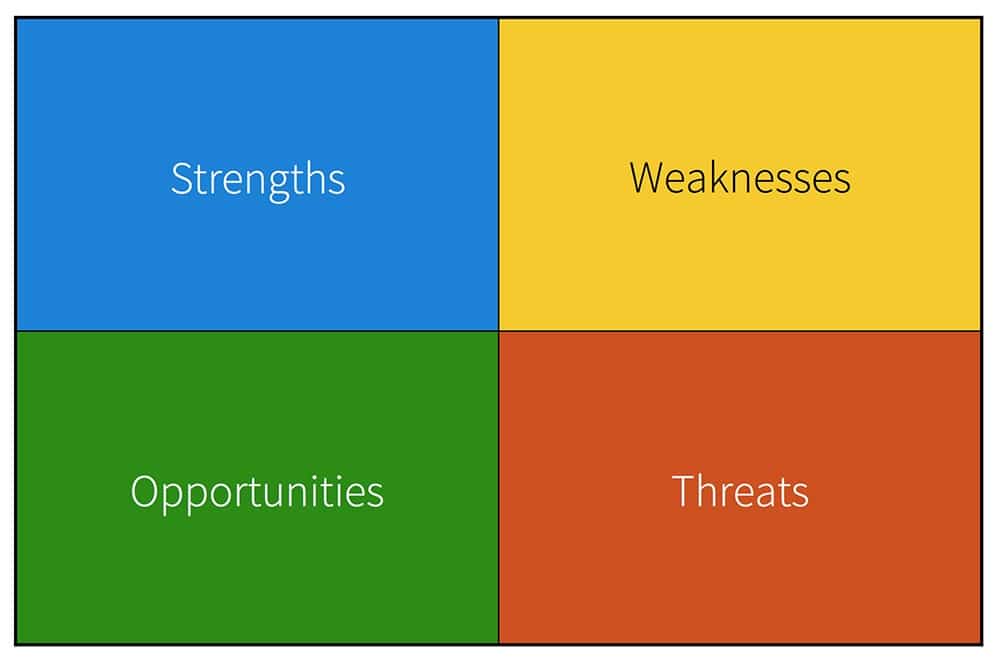
SWOT Analysis is a simple team exercise to map strengths, weaknesses, opportunities and threats so you start projects and reviews with a clear shared picture.
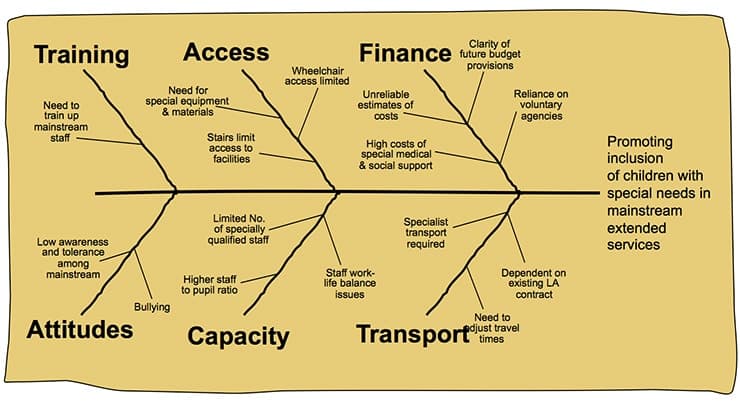
Fishbone Diagram is a group problem analysis tool that maps causes of an issue so teams build shared understanding before moving into solutions.

Day In the Life Of (DILO) maps how staff spend their time so you can improve workload, efficiency and work life balance across roles.
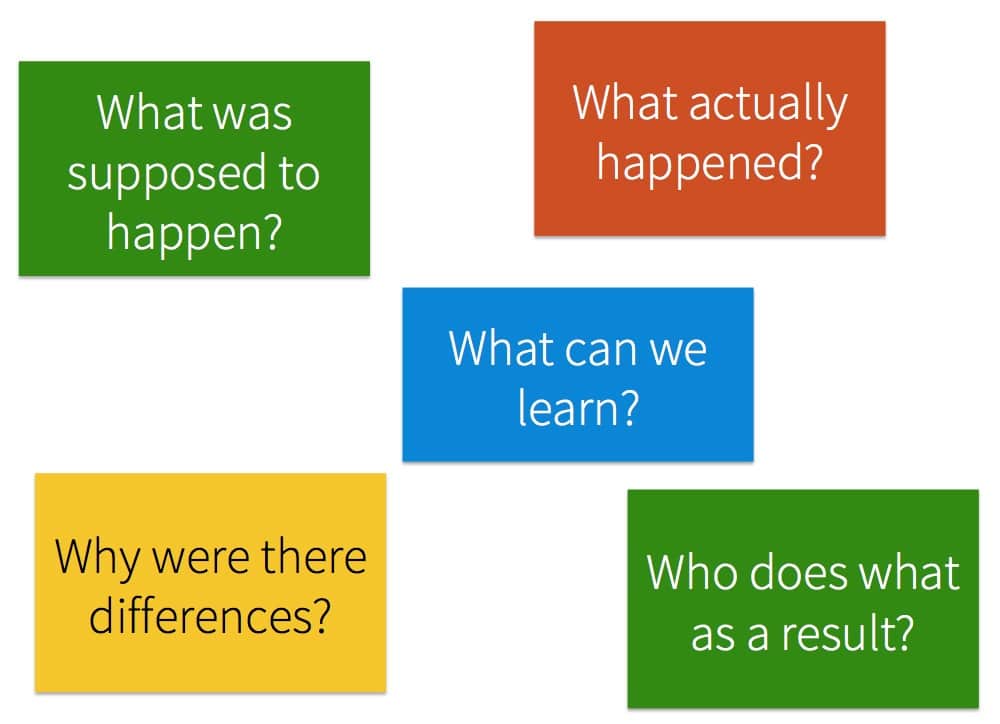
After Action Review is a simple project debrief that uncovers what really happened, captures lessons learned and turns them into concrete actions.
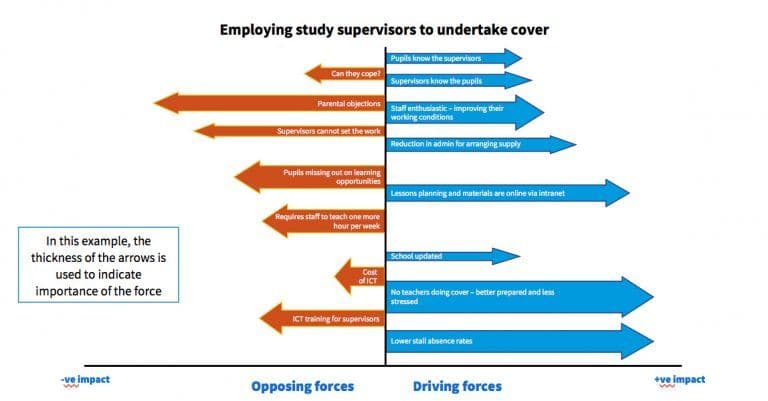
Force-Field Analysis is a change tool that maps driving and restraining forces so teams can rebalance them, plan actions and increase project success.
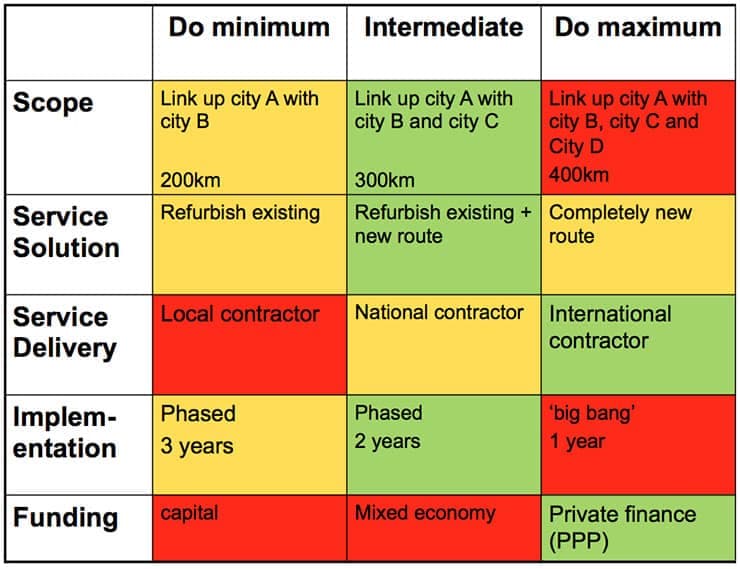
Use the Options Framework to help small groups brainstorm solutions, compare ambitious and conservative options and agree a preferred way forward.
Two ways to get started:
Choose the path that works best for you
Perfect for independent facilitators
See it in action with an expert
Join 100,000+ professionals who've transformed their workshops